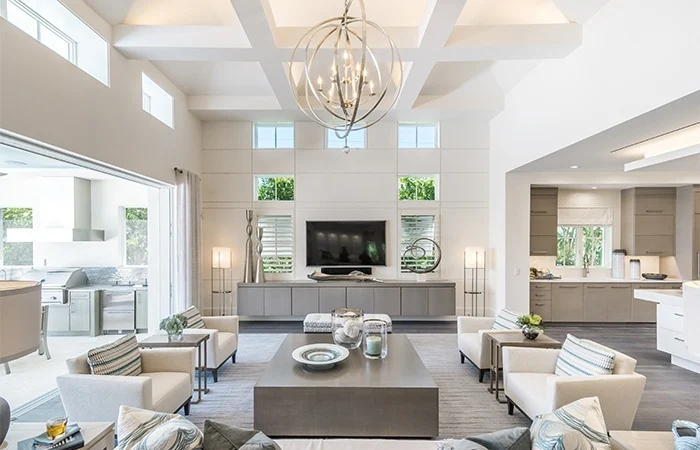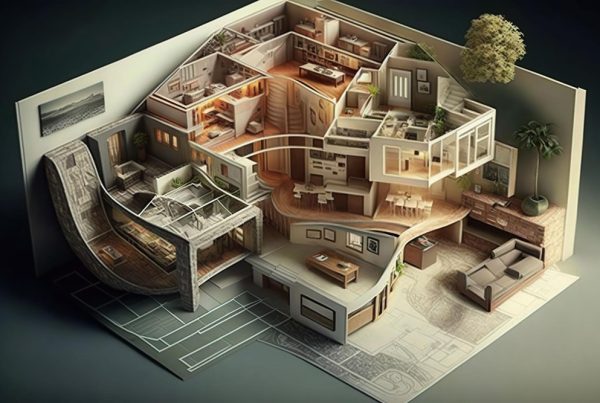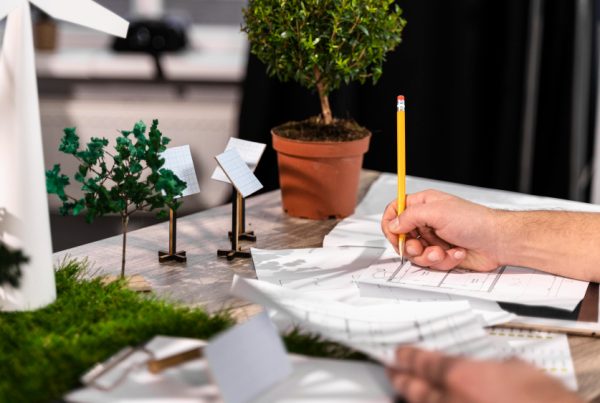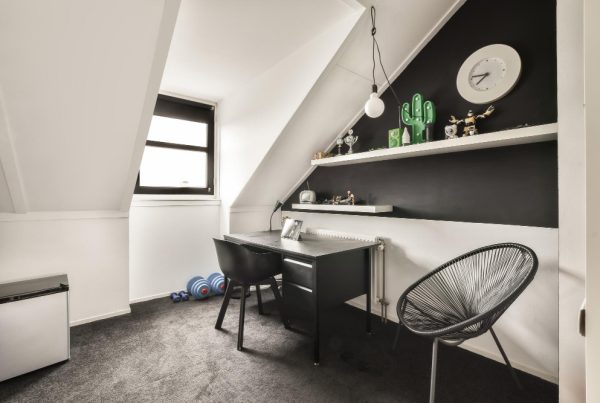We know every home has at least one or two surfaces just begging to be styled. Whether these areas are blank shelves, mantels void of personality and visual interest, or entryway consoles filled with tons of clutter, we believe these home design tips will surely help you organize and arrange your favorite accessories in your home.
Tip 1: Use a Tray
This custom home by London Bay Homes in Old Naples features one of our quick and easy home design tips.
Using a tray, like on a coffee table or console table for example, is a great way to add another dimension to a flat surface area, as well as provide a place to contain grouped items that may otherwise look disorderly. Be sure to group items of different heights and different textures. Adding an organic element to your tray, such as a small plant, can bring life and color to your grouping.
Tip 2: Decorative Boxes
The use of decorative boxes (such as a vintage jewelry box or a canvas- or fabric-covered box), are another great and attractive way to add style while hiding away remote controls, keys, and of the other unsightly items we have lying around our homes. Not only will using this tip help declutter your space, but you’ll probably be less likely to misplace these items again.
Tip 3: Visual Triangles
A helpful trick all designers love to use is the creation of Visual Triangles. This concept helps you to visualize a proportionate and eye-pleasing arrangement. It’s a technique that is especially helpful when styling mantels or shelves. Here are some key components to keep in mind when creating a Visual Triangle:
- Stagger objects by height to create either a symmetrical or asymmetrical triangle. On a mantel, for example, try using a large frame or mirror in the center to anchor your grouping. Then, layer your other decorative accessories, remembering to stagger them by size in order to create your visual triangle.
- Avoid grouping similar-sized objects together. This is a designing no-no because doing it will make your grouping appear boxy and lack visual interest.
- Avoid long, zig-zagging, or jagged arrangements (also known as Mountain-Ranging). Instead, start your grouping with the tallest item in the middle, then stagger your items by height from there, again trying to create a Visual Triangle. Placing bigger objects toward the back and smaller ones in front also helps add visual interest to your triangle.
Tip 4: Varying Heights
Use varying heights to add visual interest, as seen on this coffee table in a Mediterra Naples custom home.
The key here is to avoid putting two objects of the same height beside each other, as mentioned previously. Instead, group items of varying heights to make things visually pleasing. One of our favorite tricks is using books to help elevate objects.
This tip also applies to your walls, which we often forget to accessorize. To make a bold statement, try hanging your artwork, frames, or mirrors in visually striking patterns using varying heights and shapes on your wall.
Tip 5: Groups of 3 or The Rule of 3
This is a guideline more than a rule, but it simply means that items arranged in odd numbers are more visually appealing and effective than groupings of even-numbered objects. The number three seems to be the “magic” number, but of course, other odd-numbered groupings of say, five or seven items, can work nicely. Another important tip when creating your groupings of odd-numbered items, is to try and mix vertical and horizontal objects together, as well as mixing texturally different items. Again, your goal here is to create visual interest in your decorative arrangement.
Tip 6: Books
Whether you are arranging a bookshelf or using a stack of books to help elevate or add visual interest to another surface in your home, remember to mix it up by arranging your books horizontally as well as vertically. Stacking three books together with a small decorative item on top, near a section of books placed standing vertically, creates a much more eye-pleasing arrangement than merely placing all of your books in a long, vertical line across the shelf.
Remember, accessories are the finishing touches added to your space – they should work together along with your furniture to personalize your home. We know these guidelines will help you to arrange your accessories in the most effective way and we hope that with our home design tips and tricks, you can now fill any blank or cluttered surfaces with visually-pleasing arrangements that will make your home look like it was professionally decorated.

